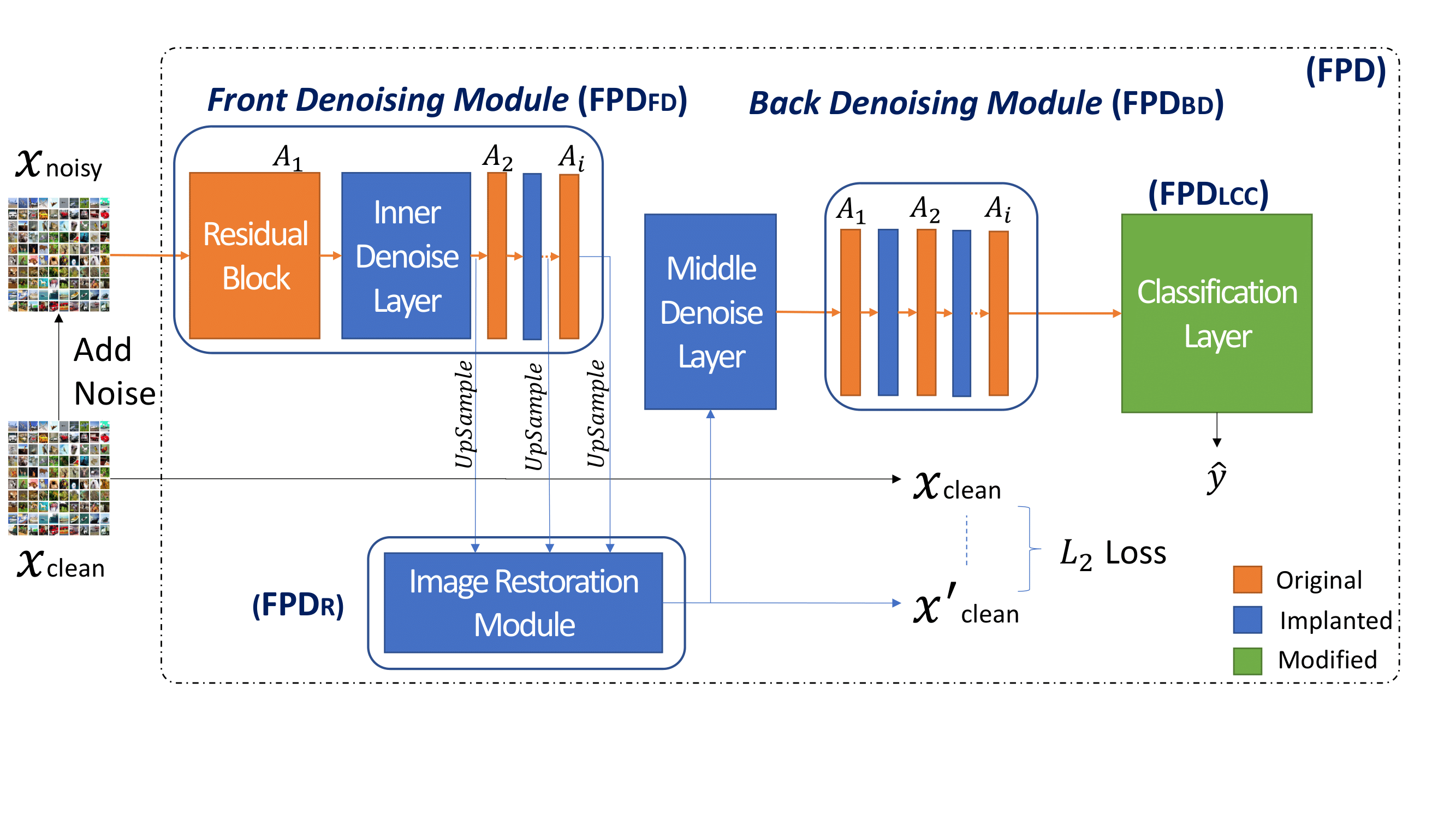Enhancing Intrinsic Adversarial Robustness via Feature Pyramid Decoder
Whereas adversarial training is employed as the main defence strategy against specific adversarial samples, it has limited generalization capability and incurs excessive time complexity. In this paper, we propose an attack-agnostic defence framework to enhance the intrinsic robustness of neural networks, without jeopardizing the ability of generalizing clean samples. Our Feature Pyramid Decoder (FPD) framework applies to all block-based convolutional neural networks (CNNs). It implants denoising and image restoration modules into a targeted CNN, and it also constraints the Lipschitz constant of the classification layer. Moreover, we propose a two-phase strategy to train the FPD-enhanced CNN, utilizing $\epsilon$-neighbourhood noisy images with multi-task and self-supervised learning. Evaluated against a variety of white-box and black-box attacks, we demonstrate that FPD-enhanced CNNs gain sufficient robustness against general adversarial samples on MNIST, SVHN and CALTECH. In addition, if we further conduct adversarial training, the FPD-enhanced CNNs perform better than their non-enhanced versions.
PDF Abstract CVPR 2020 PDF CVPR 2020 Abstract



